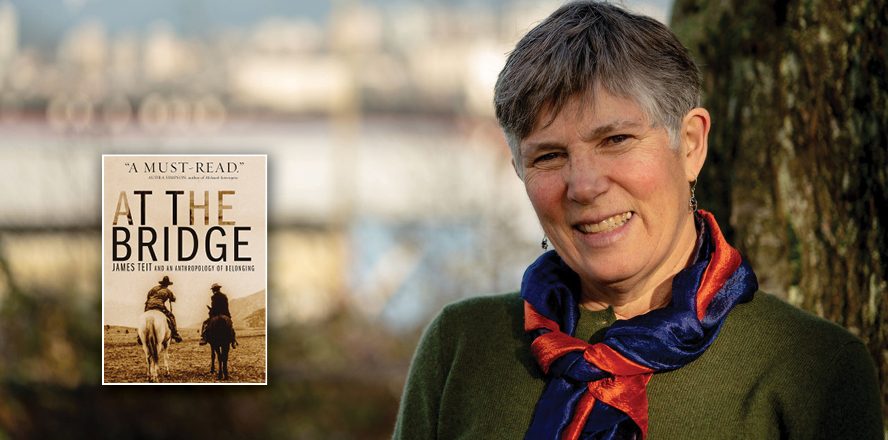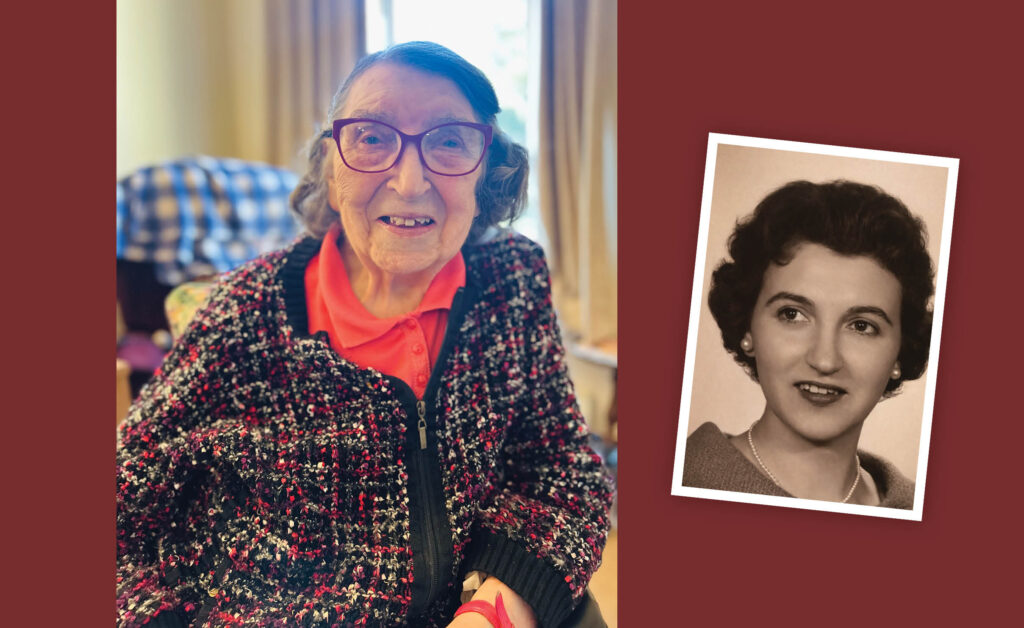by Gillian Crowley –
A long and fascinating journey has led Wendy Wickwire to discover an important but overlooked figure in B.C.’s history: James Teit was an ethnographer, hunting guide and friend of the Indigenous communities in the B.C. Interior and beyond.
In 1977, Wendy started to record the songs and stories of Indigenous elders in the BC Interior as part of her history studies. Born in Nova Scotia, Wendy’s early immersion in music and later a degree in ethnomusicology led her eventually to Teit whose wax cylinder recordings of Indigenous stories and songs she discovered rerecorded on tape at the Canadian Museum of History in Hull. Teit’s undervalued life and legacy are now revealed in Wendy’s 2019 book, At the Bridge: James Teit and an Anthology of Belonging published by UBC Press. Throughout the book she acknowledges the assistance she’s received from Indigenous communities.
A Shetland Islander, Teit immigrated as a young man to Canada in 1884. He eventually settled on a ranch near Spence’s Bridge where he married Lucy Antko, a Nlaka’pamux woman, who died 12 years later of pneumonia. Over his lifetime he immersed himself in the Pacific Northwest’s Indigenous cultures, recording their songs and making copious notes about their stories, hunting/fishing practises, plant knowledge and more. Later, as a translator and advisor, he assisted the chiefs who were trying to negotiate land claims with the provincial and federal governments in the early 1900s.
Wendy’s research revealed that Teit had published 11 monographs under his own name and supplied a huge amount of field information about B.C.’s Indigenous culture to Franz Boas, considered Father of North American anthropology, and Marius Barbeau, a Canadian anthropologist regarded at the time to be an authority on folk and Indigenous traditions. Neither gave Teit his due and after his death they virtually ignored and erased acknowledgement of his contributions to their work.
Wendy’s comprehensive biography explores Teit’s ethnographic studies and political activism within the context of the times: the settler colonization of the land and the racism experienced by B.C.’s Indigenous people. It’s mind boggling to realize that 120 years later B.C. is still dealing with the land claims issues that were being discussed and negotiated then.
“We don’t have anyone like James Teit in the historical record,” says Wendy. “He learned three Indigenous languages, recorded their songs and stories, paid women well for cultural items such as clothing and baskets, and unlike others, was not pushing a religious agenda. In contrast with other anthropologists of that era, he was scrupulous about recording the names of the singers, story-tellers and creators of cultural items.”
Even though Teit had to support a family through his guiding business, he found time to aid Boas and others with their research (for meagre pay) and helped the chiefs to cross the language barrier in their land negotiations. His friends warned him he would pay a price for his close connections with the Indigenous communities and, indeed, he was blackballed by the colonist society and other ethnographers.
“Writing this book has been such a rewarding experience,” says Wendy, who recently retired from UVic’s History department. “The source material kept me motivated in the classroom and there is so much more my students and others can pursue.” The book’s detailed endnotes supply a catalogue of sources for future research.
When living in Lytton and Merritt during her research, Wendy spent extensive time with elders who remembered the old songs and could still sing them. “It was a pleasure to start my book with my memories of what these amazing people shared with me.”
One of Wendy’s greatest rewards is hearing Indigenous people say they feel Teit’s story should be known Canada-wide. She says: “I think Teit’s life is a testament to Reconciliation – it’s amazing to find ethnography that is so rich in cultural immersion and sympathy.”
Wendy Wickwire will discuss her book March 6 at 7 p.m. at Shoal Centre, in a fundraiser for the Sidney Literary Festival.
Photo of Wendy courtesy Leithen M’Gonigle; photo at top left courtesy Sigurd Teit.




